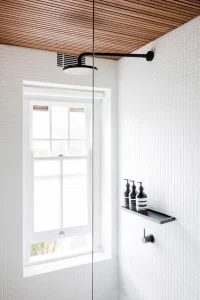
How to Choose the Best Roofing Tiles for Your Home
With numerous types of roof tiles to choose from, it’s essential that you select one suitable for your home’s design, location and energy efficiency. Aspects which should guide this decision include house design, location and efficiency considerations.
Clay and concrete roof tiles provide durable roofing options that can withstand even extreme weather conditions, from strong winds to heavy rainfall and hailstorms.
Clay Tiles
Clay tiles are an increasingly popular choice among homeowners for their durable and versatile roofing properties. Able to withstand harsh weather conditions including strong winds and heavy rainstorms, these roof tiles provide your home with long-term protection.
Clay tiles offer excellent insulating properties, helping keep your house cooler during summer and warmer during winter. This is great way to cut energy costs.
These materials are also easy to maintain and repair if damaged, fire-resistant, and do not emit any hazardous chemicals that could threaten the environment.
However, they tend to be heavier than other roofing materials and should therefore be assessed prior to making your choice. Installation costs may also increase significantly with these tiles.
Metal Tiles
Metal tiles offer homeowners looking for a modern aesthetic an ideal option, as they come in a range of colours and shapes that make cleaning effortless. Furthermore, pre-treated versions prevent corrosion or oxidization and come with easy installation instructions.
Energy efficiency should always be taken into consideration when selecting roof tile types, as this can have an impact on your heating and cooling costs. Metal roof tiles may be ideal as they reflect radiant heat from the sun which helps keep your property cooler while decreasing energy usage.
Monterrey metal roof tiles are an increasingly popular choice amongst homeowners as they resemble traditional ceramic tile in terms of appearance and lifespan (roughly 20-50 years depending on care and installation). Adamante metal tiles add an eye-catching feature that gives your home an individual feel.
Lightweight Tiles
As opposed to their traditional counterparts, lightweight tiles are produced using recycled materials and require significantly less energy for production. Furthermore, their lighter weight makes them easier to transport and handle for builders, saving both time and money on labor costs.
Lightweight slate tiles are a popular choice among home owners, providing a timeless yet durable roof covering option. Furthermore, this material can withstand severe weather conditions like high winds, heavy rainfall and hail storms.
These tiles are suitable for felt, batten and fully boarded roofs – making them suitable for any building project. Their lightweight makes them easy to handle by both homeowners and tradesmen alike – fastening installation quickly and effectively. Plus, their dirt, moss and lichen resistance will keep your roof looking its best for longer.
Concrete Tiles
Concrete roof tiles provide high levels of durability and are impervious to fire, insects and rot. Furthermore, these resilient roofs can withstand strong winds and extreme temperatures without becoming damaged or experiencing hailstone damage.
Concrete roofing tile manufacturers produce a range of shapes, textures and profiles to fit into any style of home imaginable. From flat tiles with no curve to low profile slats that resemble cedar shake and high-profile “S” tiles that mimic Mediterranean architecture – concrete roof manufacturers create tiles in every form possible for any style of home!
Concrete tiles may not have the aesthetic appeal of clay or metal tiles, but they offer cost-effective roofing solutions at an economical price point. Installed on steep slopes quickly due to their built-in camber system, concrete tiles require minimal upkeep beyond cleaning; additional colors can also be painted onto the surface for some added flare.
Synthetic Tiles
Synthetic roof tiles provide an elegant, resilient option to consider for roofing needs. Many are made from recyclable materials like plastic, rubber, cellulose fibers and mineral dust – helping reduce waste in landfills while creating an eco-friendly material that can be recycled when it’s time for an upgrade or replacement roof.
Synthetic roof tiles offer an easier alternative to natural slate which can be fragile and costly to transport, with their lightness making installation simpler than ever. Utility knives can easily cut them to required sizes allowing a roof installation project to be finished quickly while decreasing risk of breakages on-site.
Roofeco offers flat and curved synthetic roof tiles designed to mimic the look of traditional clay tile, slate tile, and cedar shake roofs. Available in multiple colors that match any home design style.



Average Rating